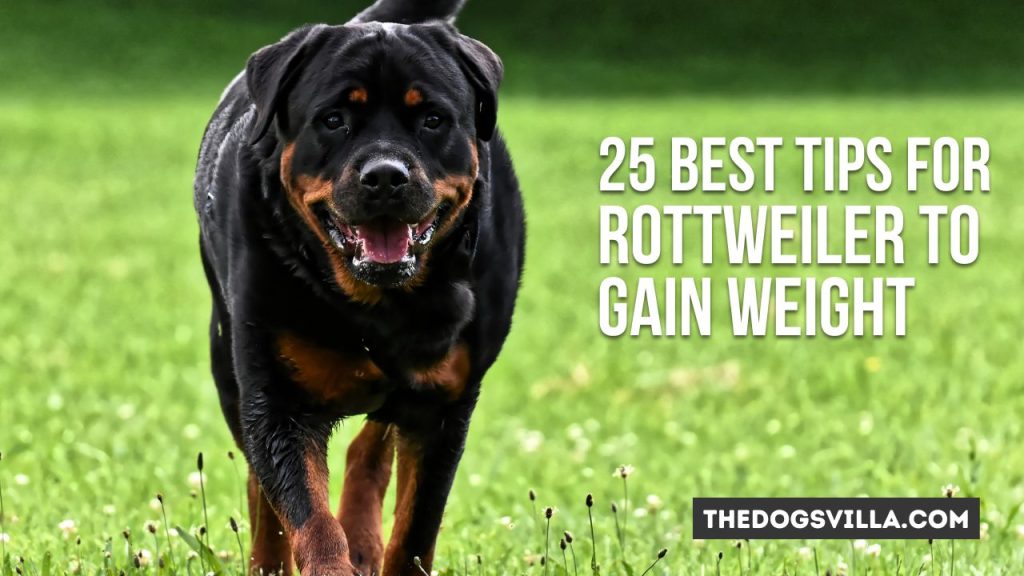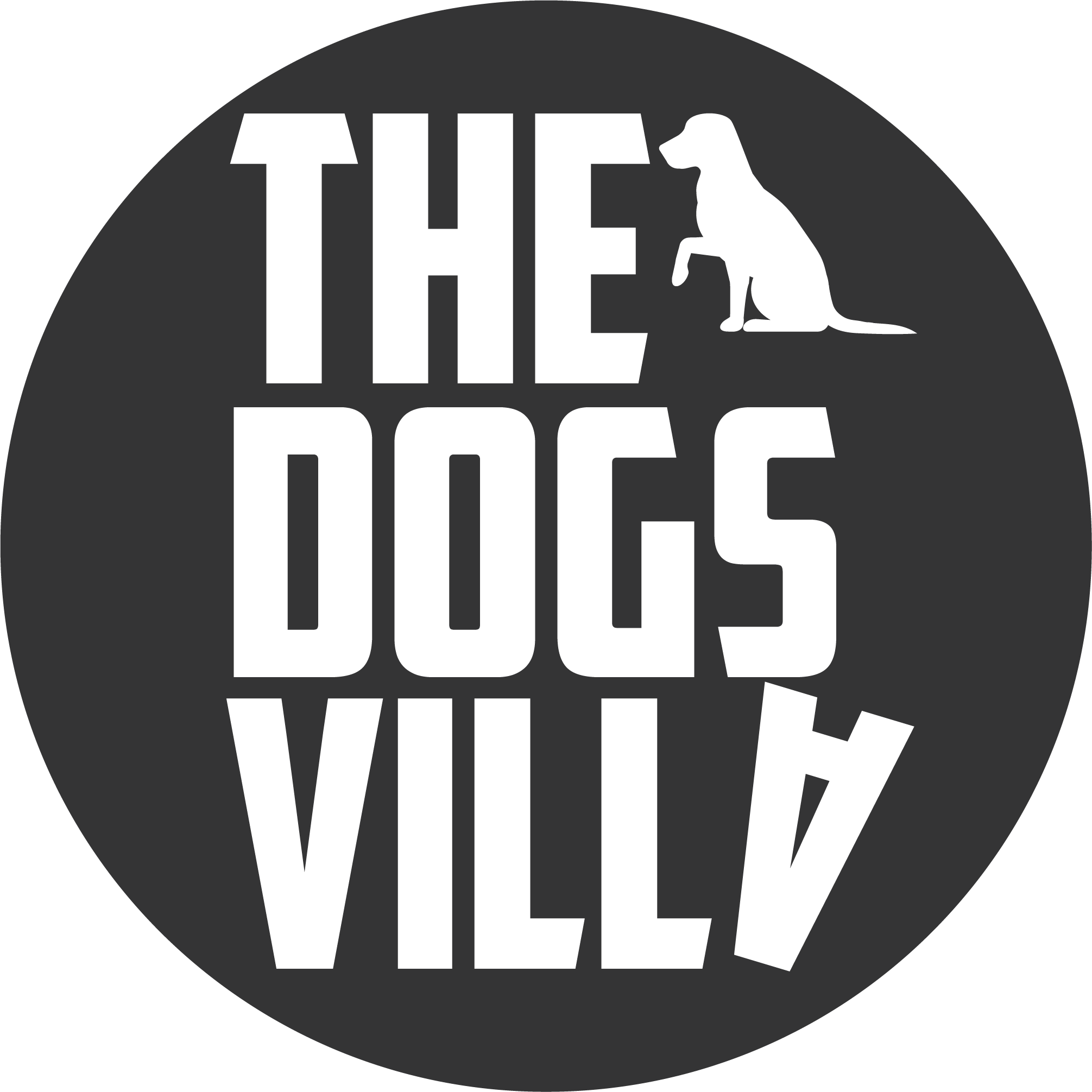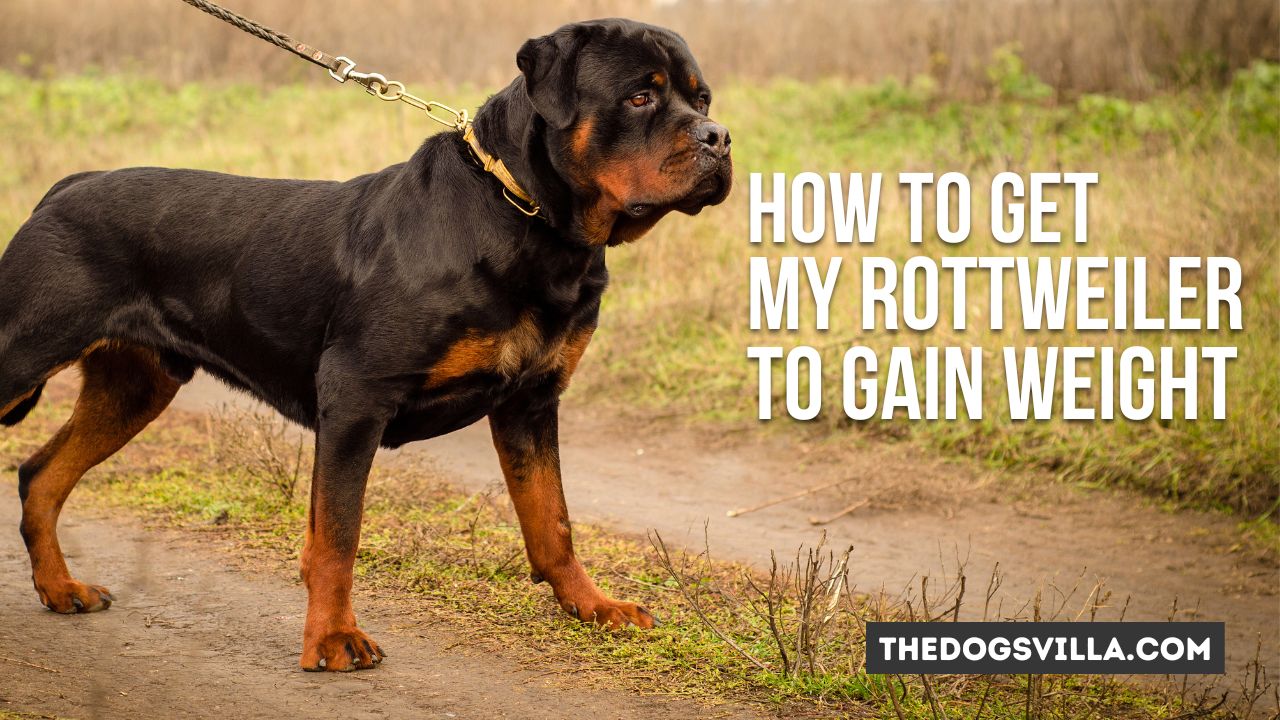Achieving healthy weight gain for an underweight Rottweiler requires strategic adjustments to their lifestyle and nutrition plan. Allowing your Rottie to remain skinny can negatively impact their energy, immunity, digestion, skin health and even behavior over time. By increasing your Rottweiler’s caloric intake through diet changes and treats, adding supportive supplements, stimulating their appetite with meal toys and techniques, and modifying their activity levels, you can help your Rottweiler pack on pounds successfully.
This comprehensive guide covers a wide variety of effective methods for how to get your Rottweiler to gain weight safely under your veterinarian’s supervision until they reach optimal body condition again.
Contents
How to Get My Rottweiler to Gain Weight
The first step is determining if your Rottweiler is actually underweight and needs additional pounds put on.
Evaluating Body Condition
You can evaluate your Rottweiler’s body condition using this 9-point scale that vets and breeders use:
Body Condition Score Scale
| Score | Description |
|---|---|
| 1 | Severely emaciated, starving |
| 2 | Very thin with no body fat |
| 3 | Underweight with ribs visible |
| 4 | Ribs still slightly visible |
| 5 | Ideal condition, ribs covered but waist visible |
| 6 | Over ideal condition, ribs difficult to feel |
| 7 | Overweight with fat deposits |
| 8 | Obese with distended abdomen |
| 9 | Grossly obese with heavy fat pads |
Most healthy adult Rottweilers should fall between scores 4-6 on this scale depending on age, health status, and activity level.
If your Rottie rates below a 4, weight gain is likely beneficial. Always consult your veterinarian as well for an expert opinion.
Target Weight Range
Male Rottweilers generally range between 110-135 pounds on average depending on their height and bone structure.
Females reach 80-100 pounds typically.
Use these general guidelines to help set an ideal target weight gain amount for your underweight Rottweiler based on sex, age and size.
Diagnosing Underlying Health Issues
Lack of appetite, poor nutrient absorption and untreated medical conditions can all contribute to undesirable weight loss in Rottweilers.
Schedule a veterinarian exam to diagnose and manage any issues, from dental problems impacting chewing to gastrointestinal conditions preventing proper digestion.
Your vet can also rule out parasites, cancer and other serious illnesses as potential causes for weight loss needing treatment.
Methods to Aid Weight Gain
Once your Rottweiler receives a clean bill of health, you can begin implementing weight gain tactics through their diet and lifestyle.
Increasing Food Intake
The most obvious way to beef up your Rottie involves expanding how much food they eat per day.
- Gradually transition over 2-4 weeks to feeding an extra meal per day, increasing portion sizes of their current brand and formula of dog food by 10-20% more kibble per meal
- For a 50 pound underweight Rottweiler who should weigh 70 pounds, you need to help them gain 1-2 pounds weekly over 10-20 weeks through increased caloric intake
- Mix some wet canned food, bone broth or healthy leftovers into kibble to increase palatability
- Try setting out free access dry food dispensers to encourage nibbling more throughout daylight hours
Monitor weight gain weekly to make diet adjustments accordingly toward their target healthy weight.
Adding Nutritional Supplements
Certain vitamin supplements and fatty acid blends available over the counter at pet stores can assist underweight Rotties needing dense calories. Research demonstrates supplements increase weight gain results by over 15% more pounds when paired with a high calorie diet versus just a calorie dense diet alone.
Common Nutritional Supplement Options for Weight Gain
| Supplement | How It Helps |
|---|---|
| Wheat Germ Oil | Boosts calories + essential fatty acids |
| Flaxseed Oil | Dense calories + shiny coat |
| Protein Powders | Builds & retains muscle |
| Vitamin B | Improves metabolism & digestion |
Follow all product instructions carefully regarding dosage for your Rottweiler’s size and age needs.
Incorporating Healthy Treats
Strategically using extra tasty and calorie-laden training treats that your Rottweiler adores can significantly move the needle on weight gain.
High Value Treat Options for Weight Gain
| Treats | Description |
|---|---|
| Peanut Butter | High fat taste most dogs love |
| Cheese Cubes | Calcium + protein boost |
| Hot Dogs | Salt-cured inches pack calories & flavor |
| Beef Liver | Nutrient dense organ meat |
| Baby Food | Pureed meats/veggies easy to digest |
Always break treat portions into small pieces to avoid overstuffing their stomach. Moderation remains key even for weight gain goals.
Adjusting Activity Levels
If your Rottweiler lives an exceptionally active lifestyle with hours of high energy exercise daily or a demanding job, they likely burn more calories than they consume.
Try cutting back high-intensity exercise to 30-45 minutes per day maximum to promote weight gain, outside of short leash walks for potty breaks. This gives their metabolism a break from burning so many calories during the weight gain process.
Later as they reach optimal body condition scores again, you can gradually reintroduce more intense exercise back into their routine.
Vet-Supervised Weight Gain Plans
For the healthiest weight gain journey for an underweight Rottweiler, develop a customized plan supervised by your trusted veterinarian.
Schedule an initial nutritional consultation where your vet performs a body condition analysis and sets an ideal target weight goal plus timeline for your Rottie.
They can prescribe a therapeutic clinical weight gain prescription kibble formula for dogs needing significant caloric intake to rebuild body mass. Hills Science Diet, Royal Canin and Purina Pro all offer these specialized dog foods.
Follow up every 2-4 weeks for body weight checks and nutritional adjustments until your Rottweiler successfully reaches their ideal weight range.
Having an expert guide each phase of the weight gain process helps avoid going overboard triggering obesity instead.
Setting a Feeding Routine
Whether managing weight gain on your own or under your vet’s guidance, establishing a consistent daily feeding routine provides structure dogs thrive within.
Sample Feeding Schedule
| Meal Time | Food Served |
|---|---|
| 7:00am | 1 cup kibble + 1 tsp oil |
| 12:00pm | 1⁄2 can wet food + treats |
| 3:00pm | 1 cup kibble |
| 6:00pm | 1 cup kibble + cooked chicken |
Breaking up their caloric intake over multiple smaller meals jumpstarts metabolism versus one large meal.
Regular timed meal sessions also help you closely monitor how much your Rottie actually consumes each day.
Pay attention to their hunger cues before and after eating as increased appetite and finishing meals can indicate your weight gain tactics start taking effect.
Weight Gain Challenges
Despite your best efforts, some Rottweilers unfortunately struggle to gain weight due to various behavioral and health hurdles.
Picky Eaters
Finicky eaters make meeting increased calorie goals extra difficult. Consider these tips for enticing persnickety Rottweilers:
- Mix in tasty wet canned food or bone broth into kibble
- Sprinkle crumbled bacon, shredded cheese or egg over food
- Offer warmed meals releasing aroma
- Try novel proteins like bison, venison or duck
- Hand feed portion then put rest in puzzle toys
If they show zero interest after 10-15 minutes, remove and try again next mealtime. Don’t cave for treats/people food or they’ll hold out for something better.
Negative Health Changes
Rapid weight fluctuations either up or down signal serious health concerns requiring prompt veterinary care.
See your vet immediately if your Rottweiler exhibits:
- Blood in stool or vomit indicating GI ulcer or blocakge
- Difficulty breathing or intolerance to exercise
- Severe diarrhea or dehydration from malnutrition
- Lethargy, weakness or severe irritability like aggression
Catching and treating health issues early makes getting back on a weight gain track easier long-term.
Environmental Stressors
Stress severely dampens appetite drive and curbs weight gain progress in dogs.
Pay attention to environmental stress triggers that could negatively impact your Rottweiler, including:
- Change in owners or family members
- Introduction of new pets
- Moving homes
- Loud noises like storms or construction
Utilize anti-anxiety treatments like ThunderShirts, pheromone diffusers or calming chews to ease stress during weight gain efforts.
25 Tips for Rottweiler to Gain Weight

-
Gradually transition to feeding an extra meal per day, increasing daily portions by 10-20% more kibble each meal.
-
Mix a spoonful of canned wet food or bone broth into kibble to increase taste and calories.
-
Try free feeding dry kibble in dispensing toys and puzzles for nibbling anytime.
-
Calculate ideal weight gain rates of 1-3 pounds per week based on current and target weights.
-
Purchase nutritious weight gain supplement powders to sprinkle on meals like wheat germ oil or protein blend.
-
Hand feed portion of meals to stimulate appetite before putting the rest in a bowl down.
-
Make bone broth ice cube treats to offer as hydrating, low-sodium snacks between meals.
-
Invest in a slow feeder bowl or snuffle mat to slow down gobbling and give a “full” feeling.
-
Swap out some kibble with cooked unseasoned beef, chicken or turkey for added protein and fat.
-
Break training treats like string cheese, hot dogs and peanut butter into tiny pieces to limit overfilling.
-
Ask your veterinarian about adding probiotic or digestive enzyme supplements to aid absorption of nutrients.
-
Limit intense exercise temporarily during the initial rapid weight gain stage to curb burning extra calories.
-
Purchase a therapeutic weight gain prescription kibble to feed under your vet’s supervision for added support.
-
Try novel protein sources like bison, duck or venison kibble to spark appetite if bored with chicken or beef.
-
Schedule regular body weighing sessions every 2 weeks at your veterinary clinic to track measurable progress.
-
Keep healthy, high value treats like beef liver, hot dogs and cheese available for rewarding good behaviors and pill-giving.
-
Satin balls are a nutritious homemade treaty made of ground beef, oats, egg and supplements providing over 1,000 calories per batch!
-
Invest in interactive food dispensing toys to motivate play, stimulate cravings and slow speed eating for better digestion.
-
Work through any potential stress triggers in their environment that could negatively impact appetite and weight gain consistency.
-
Have patience adjusting to schedule, diet and activity changes needed temporarily to help your Rottie gain their calories back post-illness or as a lanky pup.
-
Make mealtimes relaxing by minimizing external stressors – turn off TVs, other pets away, quiet family voices.
-
Try adding nutritional yeast flakes on top of your Rottweiler’s meals for serious B vitamin & amino acid enrichment they’ll love.
-
Check with your veterinarian before switching proteins or formulas during weight gain to avoid disrupting gut health or metabolism changes.
-
Keep an eye on amino acid balance looking for methionine & cystine and calcium-to-phosphorus ratios meeting minimum nutritional requirements while picking a weight gain kibble.
-
Celebrate every little weight gain win achieved along their journey! Just a few added pounds makes a significant difference toward a healthy, happy Rottie.
Frequently Asked Questions
What are the best dog foods for underweight Rottweilers?
Veterinary prescription weight gain diets from Hills Science Diet, Purina Pro Plan, or Royal Canin offer added calories, protein and nutrients. You can also look for high calorie nutritional kibbles from brands like Wellness CORE, Merrick, or Nutro Ultra.
Should I give my underweight Rottweiler puppy vitamins?
Check with your vet first before giving any supplements, including vitamins. Puppies have different nutritional needs still developing. But vitamin B complex and vitamin C supplements can benefit some young dogs needing extra support.
How much should I feed my Rottweiler puppy?
The average Rottweiler puppy eats about 2-2.5 cups of quality puppy kibble divided over 3-4 meals at 8-12 weeks old. Total quantities differ based on age, weight needs and product calorie counts.
Can underfeeding cause aggression in Rottweilers?
Yes, chronic underfeeding where dogs lack proper nutrition can lead to several behavioral issues including increased territorial aggression, resource guarding and anxiety. Maintaining a healthy weight helps avoid these problems.
Conclusion
Getting an underweight Rottweiler to add pounds in a safe, gradual manner requires patience and diligence. But the rewards of having your happy Rottie return to a robust body condition make the effort worthwhile.
With a multifaceted approach addressing diet,activity and stress, your dog can gain weight successfully within a reasonable timeframe of 2-4 months. Noticeable improvements to energy levels, skin and coat health arise as well.
The key remains working closely under the guidance of both your breeder and veterinarian throughout the process to ensure weight milestones get hit while avoiding obesity levels instead. With extra TLC and calories, your skinny Rottweiler will be chasing frisbees feeling their best again in no time!

